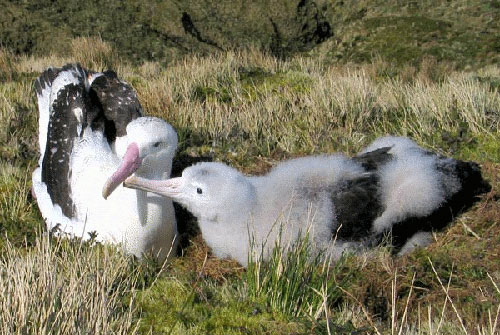At its 40th Session held in Istanbul, Turkey this month the Committee of the World Heritage Convention considered the plight of Gough Island (part of a World Heritage Site) and its seabirds, including the Critically Endangered and ACAP-listed Tristan Albatross Diomedea dabbenena that is under threat from introduced House Mice Mus musculus. It also considered plans (click here) by the UK’s Royal Society for the Protection of Birds (RSPB) to eradicate the mice.
The Committee noted that although:
“allocation of three-quarters of the eradication programme budget is anticipated through RSPB’s fundraising campaign, it is of concern that the remaining funding source has not yet been confirmed. Considering the urgent need to address the threat … it is recommended that the Committee request the State Party to urgently allocate sufficient funds for the rapid implementation of the eradication programme.”
The Committee further requested that “the State Party … take urgent action to eradicate mice from the island and urges the State Party to make a firm commitment to allocate sufficient funds for the rapid implementation of the house mouse eradication project”.
(click here for the full text of the WHC document).
Read a news report on the issue here.

A Tristan Albatross chick begs from its parent on Gough Island, photograph by Andrea Angel and Ross Wanless
Meanwhile, an independent review by the Institute for European Environmental Policy commissioned by the RSPB has concluded that the “Gough and Inaccessible Islands WHS [World Heritage Site] clearly meets the criteria for inclusion on the List of World Heritage in danger” and that “the site should be urgently added to the List” because of the threats its birds face from mice.
With thanks to John Kelly.
Reference:
Tucker, G. & Underwood, E. 2016. Gough and Inaccessible Islands World Heritage Site: an Assessment of its Status and Case for Inclusion on the List of World Heritage in Danger. London: Institute for European Environmental Policy. 40 pp.
John Cooper, ACAP Information Officer, 21 July 2016

 English
English  Français
Français  Español
Español